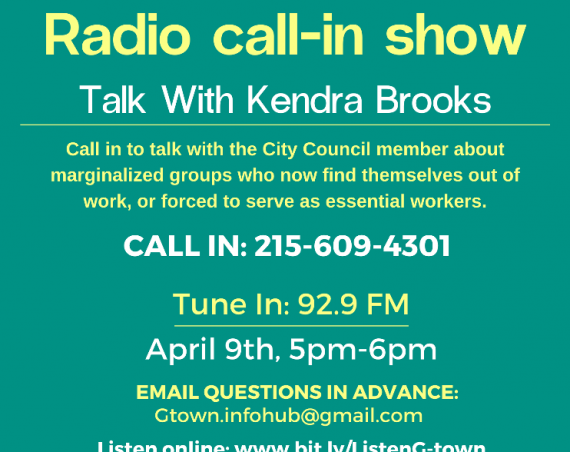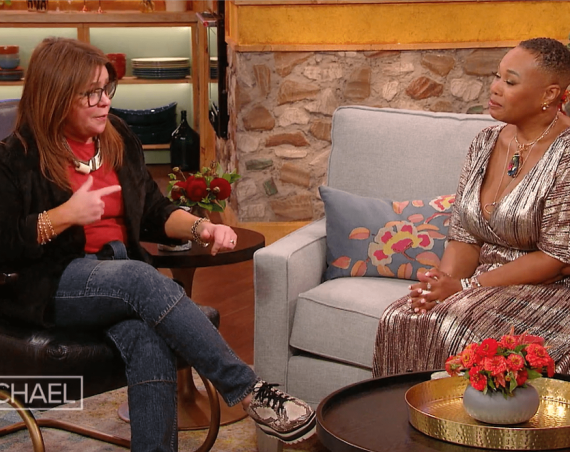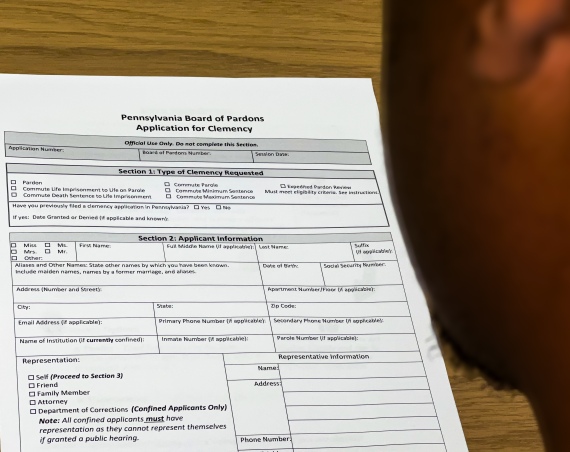There is a shocking truth that almost 20% of small businesses fail by their first year mark, 30% by the second, 50% by the fifth year, and 70% by the 10th year. And for Black-owned businesses specifically, it’s even worse, with eight out of 10 failing within the first 18 months of operation.
It’s also known that between late May and early June of 2020, Google searches for “Black-owned businesses near me” were massive. Black businesses even saw a rise in consumer support in the following months after George Floyd’s unjust death. And after only a few months, Black businesses saw their numbers drop again.
On Thursday, September 1, the Germantown Info Hub aired a segment on the Info Hub Hour on G-Town Radio highlighting the historical significance of Black businesses in the neighborhood. That episode was a montage of voices of Black business owners and historians in the community speaking about their respective experiences.
During that episode, each person discussed things they needed to sustain the future of their businesses. While speaking to their needs, many of these suggestions corresponded with what other Black businesses need to thrive. This article will outline some of those suggestions from those voices, plus more. As a neighborhood with a legacy of Black businesses, here’s how you can continue to show up for them.
Lending space
Too often, people forget that artists and creatives are business owners. They rely on commissioning their work and having spaces to create. “I just need more studio space so I can be more inspired,” says Nomad, street artist and owner of Good Samaritan Creative Co. “Everything I create, I create in my living space.” Nomad says that people create studio spaces with community-centered intentions, but prices can keep folks from fulfilling their mission. Lending space to Black creatives is a crucial part of their long-standing sustainability. Nomad also says that even if you can’t lend it for free or through a reparations-based model, it’s still worth adjusting the price point for folks.
Sharing your favorite stores
Customers are essential for any business, but one underrated way to attract patrons is through customers spreading the word. Owner of Black Soul Vintage Tomarra Sankara-Kilombo says that it’s vital for customers to feel the vibe of coming into a business. She says, “if you came to the shop and liked it, tell somebody. Follow us on Instagram, like the posts, comment, and share.”
There are many ways that you can spread the word about your favorite Black businesses, including across social media, as Sankara-Kilombo suggests. But traditional ways like word-of-mouth and conversation, and group outings are still powerful modes of promoting the businesses you want to see thrive.
Communication and marketing skills
Owning a business doesn’t come with the know-how of marketing a brand, events, and products to the community. The way businesses engage with their supporters is changing. With the rapid expansion of technology and digital media, people’s leading source of keeping up with the things that interest them is social media. Director of Community Engagement and Programs at Historic Germantown, Monica O. Montgomery, says that while many Black businesses are in the neighborhood, some struggle with visibility.
“If you cannot secure an audience and a market, you are going to struggle,” Montgomery says, highlighting the importance of visibility for any business. While it’s common to volunteer services and skills to non-profits, it isn’t far-fetched to do the same for small Black-owned businesses. We also encourage offering your skills for a fee, mainly if you operate a Black business in communication and marketing.
Supporting vendors markets
One of the most-mentioned themes across voices on the September 1 episode of the Info Hub Hour was vendors’ markets and spaces. A common thought was that people don’t value businesses that operate through vendor markets and online sales as they do businesses with physical spaces. Montgomery and Sankara-Kilombo, who formerly ran Black Soul Vintage through pop-ups and online sales, refuted these sentiments and said that vendors contribute to the neighborhood economy as much as any other business.
Sankara-Kilombo now hosts the Black Soul Block Party, a Black-centered vendors market, on the last Saturday of each month at her storefront. During the September 15 airing of the Info Hub Hour, she said that these are her way to help give upcoming Black vendors the first step towards success. Supporting Black vendors is crucial to their future sustainability.
Make space for grace and patience
“We have to love up on our Black businesses and not give up on them,” Montgomery says, establishing a larger point surrounding the expectation of Black businesses. Like any small business, Black business owners are not exempt from challenges. They experience staff shortages, delayed shipping, and other growing pains like any other small business. Still, these businesses are commonly expected to be the exception because of the “Black” in front of it.
Black businesses need and deserve the patience and grace to make mistakes and still receive support from the communities they serve. Granting them that space and maybe giving them tips can help them overcome adversity and thrive for years.
–Special thanks to Monica O. Montgomery (Historic Germantown), Nomad (Good Samaritan Creative Co), Tomarra Sankara-Kilombo (Black Soul Vintage), and Steven CW Taylor (Ubuntu Fine Art) for their participation in the 9.1.22 and 9.15.22 episodes of the Info Hub Hour. Their responses served as a blueprint for this small, needed list of ways people can show up for Black businesses in Germantown and beyond.

The Germantown Info Hub is one of over 20 news organizations producing Broke in Philly, a collaborative reporting project on solutions to poverty and the city’s push towards economic justice. Follow us at @BrokeInPhilly.



